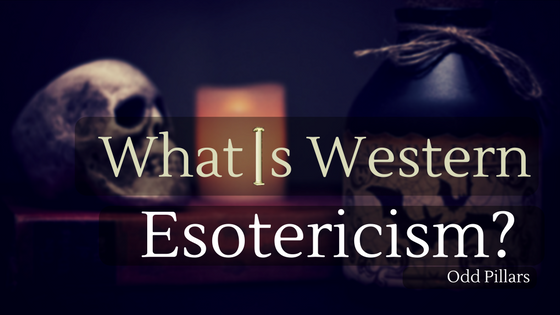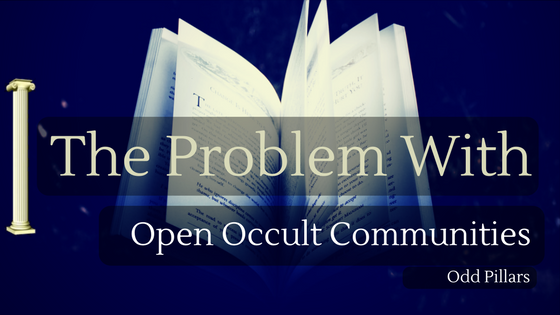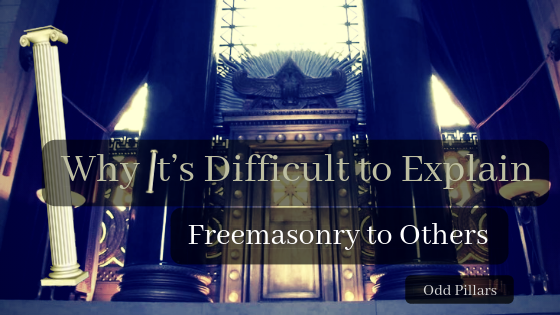Why It’s Difficult to Explain Freemasonry to Others
How do we describe Freemasonry to other people?
By: Joe Rezendes, 32°
Have you ever had a friend, relative, or colleague inquire about your membership in masonry? They might ask a question like, “So what do you guys do?” or “What is Freemasonry?”, and you’ll find yourself stuck like a deer in headlights because it’s not an easy question to answer. Sometimes it’s easy to just eschew, Masonry is a peculiar system of morality, veiled in allegory, and illustrated by symbols, and sure, this may very well be a good answer. But it definitely doesn’t answer the “what do you guys do?” question. So how do we answer these questions? It’s simple: we don’t.
Maybe this is a controversial opinion, but more often than not, the one’s asking these questions are not yet ready to become Masons, and by telling them what Masonry is, we throw them on a path that they aren’t ready for just yet. There’s a reason we don’t recruit people to join our lodges. We expect people to come to us. But what does this mean?
For many of us, it took a bit of soul searching to find out about the fraternity. For others, it may have been in their family. But each of us has probably done a great deal of research on Masonry and other similar esoteric or philosophical groups, and individually decided that we wanted to seek further light by joining ourselves. Remember that to be a Mason you must first be prepared in your heart.
By giving out concrete answers about what Freemasonry is, or even dumbing it down so that others understand it, we cut out the path for interested people to discover it on their own. Additionally, describing Freemasonry isn’t easy to do because it’s so many things for so many of us. There’s a side of the fraternity for brothers interested in the esoteric side of things, there’s a side for brothers interested in connecting with others, and there’s a side of masonry that’s interested in doing charitable or philanthropic work for our communities. So what is Masonry really? Is it a modern day ancient mystery school? Is it a charitable organization? Is it an old man’s club? The answer is it’s all of those things, and more.
How do you describe what being apart of the brotherhood of Freemasonry means? How do you communicate to others the special bond that ties us together? How do you communicate our unique history? That brothers come together not for networking or business purposes, but for fellowship. That as brothers we are equal in each other’s eyes, regardless of outside social or economic status.
You can sometimes give stories or examples of our unique brotherhood in action. For instance, I like to tell non-masons this story when trying to describe meeting on the level:
When Andrew Jackson was president of the United States, he was a member of a lodge in New York. One of the groundskeepers for the White House was also a member of that lodge, in fact he was the Worshipful Master. When going into lodge, even though Jackson technically was this brother's boss, he still respected him as the Worshipful Master, and would ask him for permission to speak inside of the lodge room. While in lodge, these two were equals, they were brothers. Outside of the lodge room they were from completely different socio-economic backgrounds, but they both shared a special bond because they were both brother Masons.
This is a great story, except the follow up question I generally receive, is if they are equals, why is one called the Worshipful Master? I’ll respond to this by answering this question and then conversation usually ends.
In the end, yes, I’ve described Freemasonry, at least in part, to someone, but they can never understand what it is unless they go through it themselves, and furthermore, I would rather them look into Masonry on their own and discover through their own research that it is right for them, without me giving them my biased opinions about what I think Masonry is or how it should be.
Because ultimately, if a potential brother does the research, and decides that masonry is right for them, then it is. Rather they come for philosophical reasons, or for fraternal ones, as long as it is under good intentions, they came for the right reason, and they were brought to it by their own path in life.
By paving the path for people, we do a disservice to the craft by giving people the tools before they are ready for them. Masonry is a progressive science, and I really believe that until someone arrives at Masonry of their own accord, that they shouldn’t be receiving shortcuts, or be given convincing stories to petition a lodge.
So when someone asks me, “what’s Freemasonry?” or “what do you guys do?” I tell them that they have to research it on their own, and once they’ve done some research and have specific questions, I will be happy to answer them so long as it doesn’t interfere with any of my obligations.
By telling them to research it on their own, we weed out those that are interested and those that are not. If they are truly interested in becoming brothers then they will reach out again once they’ve looked into it a bit. The goal of telling potential brothers to research it on their own is to ignite a spark of curiosity that will set them down the right path.
Another great answer is a follow up question: Why do you want to know? This can tell you a lot about someone’s intentions and give you the opportunity to pick an answer that you think is right for their them at their current moment on their path.
Every now and then I meet people that immediately know what Freemasonry is, and wish to talk about some of the more esoteric aspects western philosophy and initiatic systems. These are my favorite people to come across, as they have already done the research, and many have truly great reasons for wanting to join the Fraternity. I try and answer as many questions as I can, so long as I can tell that they are well read, and do not interfere with any of my obligations.
We do not have to defend our existence to the general public. We do not have to tell everyone who asks exactly what Freemasonry is. In the end, the people who are meant to become brothers will become brothers, and they will do so because they are ready. We shouldn’t try and make shortcuts to enlightenment, and we shouldn’t try to make shortcuts into Freemasonry.
I’m interested in hearing your own thoughts. Do you agree or disagree? What's the best way to describe Freemasonry to others?
If you are interested in learning more, consider joining our private Facebook group.
Featured Posts

What is Western Esotericism?
More and more people are calling themselves Western Esotericists. But what is Western Esotericism?

The Problem With Open Occult Communities
Many Occultists are turned off by open online Occult Communities for several reasons. Why is there so much fluff?
